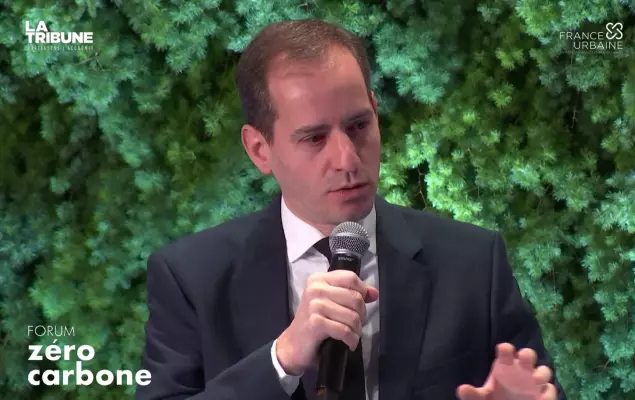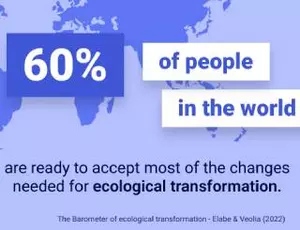With these words, Sébastien Daziano, Veolia's Senior Executive Vice President, Strategy & lnnovation, began his speech this morning at the Zero Carbon Forum organised by the newspaper La Tribune at the Paris City Hall - underlining the extent to which the world is now ready to accelerate the ecological transformation movement.
Climate: are we ready to change everything?
This was the central question at the World Climate Day event, a few weeks after COP27. The answer is yes, according to Sébastien Daziano, who recalled the figures of the Ecological Transformation Barometer. This global survey conducted with Elabe highlights the support of a majority of the world's population for change, considering the cost of inaction to be higher than the investment needed for ecological transformation.
We need to take concrete action. But for this to happen, all the players - the States, local authorities and private companies - must act together to widely deploy the solutions at industrial level, throughout the country. In this sense, the commitment of local elected representatives and the regulations have an absolutely vital role to play.

Untapped wealth
Many solutions already exist to combat climate change. “We can prevent a repeat of the crisis like the one we experienced last summer with record temperature rises and water supply problems thanks to the reuse of wastewater. In Spain, 15% of wastewater is reused compared to less than 1% in France!” Sébastien Daziano stressed. And given the current energy situation in Europe, France has untapped resources throughout the country. “If we equip all wastewater treatment plants and exploit the full potential of organic waste in our territories, we can, thanks to biomethane, replace 25% of the Russian gas imported into France,” he explained.
According to Sébastien Daziano, it is no longer a question of transition but of profound transformation. “Today, we have to completely rethink our environment with cities that will have to adapt. This raises the question of the continuity of activity of all public services: drinking water, waste management, etc. And it is actually these adaptation scenarios that we need to work on. The task before us is considerable, but we are now ready,” he concluded.
It's time to accelerate the ecological transformation!
For more information
> Press release: Veolia and Elabe present the first global opinion survey on the ecological transformation
> Zero Carbon Forum



